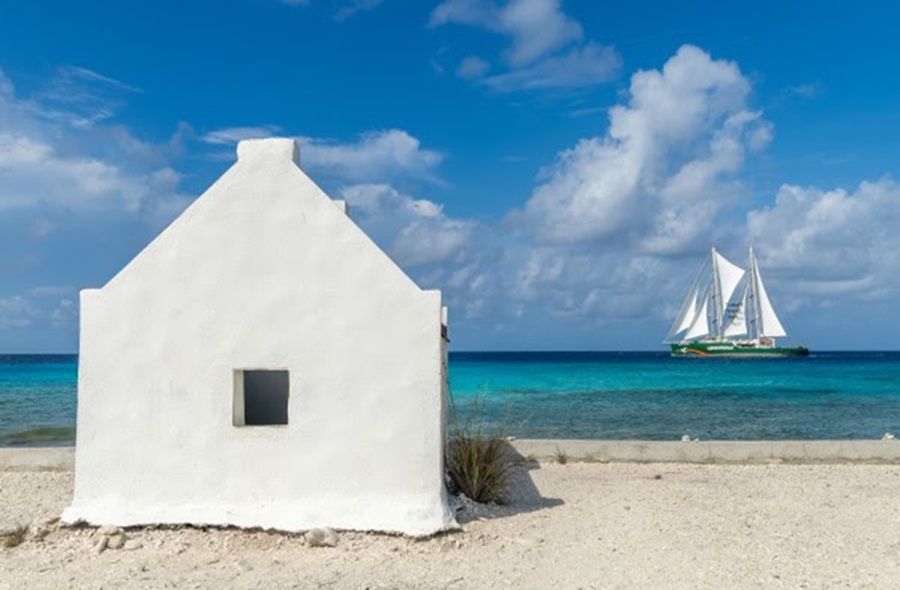Residents of Dutch-Caribbean island Bonaire and Greenpeace Netherlands take on the Dutch State in court on 7 and 8 October. They argue that the government is violating human rights by failing to provide adequate protection against the effects of climate change. It is the first time that the landmark decisions on climate change from international courts, such as the International Court of Justice, will be used in a national court. The hearings take place at the district court of The Hague, the same court that gave the world’s first order to a national government to reduce CO2 emissions faster back in 2015. This time, the residents of Bonaire and Greenpeace are demanding that the government reduce CO2 emissions to zero by 2040 at the latest and come up with concrete plans to protect Bonaire.
Previous research commissioned by Greenpeace Netherlands, shows that the climate crisis is already affecting daily life on Bonaire. The low-lying Caribbean island is part of the Netherlands. Residents are at great risk due to sea level rise, extreme weather and dying coral reefs. People are already experiencing the health effects of extreme heat. Without action, up to a fifth of the island could be underwater by the end of this century.
Judmar Emerenciana, graphic designer and plaintiff in the Bonaire Climate Case: “I look forward to standing in court opposite a government that has looked the other way for years. It is too hot to walk or cycle outside. And when it rains, it rains so hard that everything is flooded and the roads are impassable. I am concerned that rising sea levels will cause coral to disappear, with major consequences for the island’s prosperity. I am not here just for myself, but for everyone on Bonaire. We have a right to a future – just like everyone else. With this lawsuit, we are saying: enough is enough – we demand protection.”
Greenpeace Ship Rainbow Warrior sailing by slavehuts Bonaire. © Casper Douma / Greenpeace
First climate case after landmark decisions
This is the first climate case in Europe that concerns adaptation; taking protective measures against climate change. And it is one of the very first climate cases following recent groundbreaking legal developments, such as the ruling of the European Court of Human Rights in the Klimaseniorinnen case and the recent advisory opinion of the International Court of Justice in The Hague. The judges unanimously ruled that states must keep global warming below 1.5 degrees and that their climate plans must show maximum ambition, taking into account historical emissions and national circumstances.
During the first day of the hearing on Tuesday 7 October, the plaintiffs will have their say and the focus will be on measures to limit global warming (mitigation). On Wednesday 8 October, the focus will be on protection against the effects of climate change (adaptation). The ruling is expected at the end of 2025 or beginning of 2026.
Marieke Vellekoop, director of Greenpeace Netherlands: “The Dutch State applies double standards when it comes to protecting citizens against the climate crisis. But while Bonaire is already paying the price for the climate crisis, The Hague continues to look the other way. This is not only unacceptable, it violates the fundamental rights of the people on the island. The Dutch State must honour its legal duty and offer the people of Bonaire the same protection as citizens living in the European part of the country. That is not a favour, it is its duty.”
It makes a world of difference to the consequences of climate change whether we succeed in keeping global warming below 1.5 degrees, especially for Bonaire. The inhabitants of Bonaire and Greenpeace demand that the Dutch State make its fair contribution to achieving global climate goals. Given its historical emissions, this means becoming climate neutral as soon as possible, by 2040 at the latest. The (outgoing) cabinet is currently not complying with the Dutch Climate Act and is instead protecting major polluters by providing fossil fuel subsidies and rolling back climate policy.






